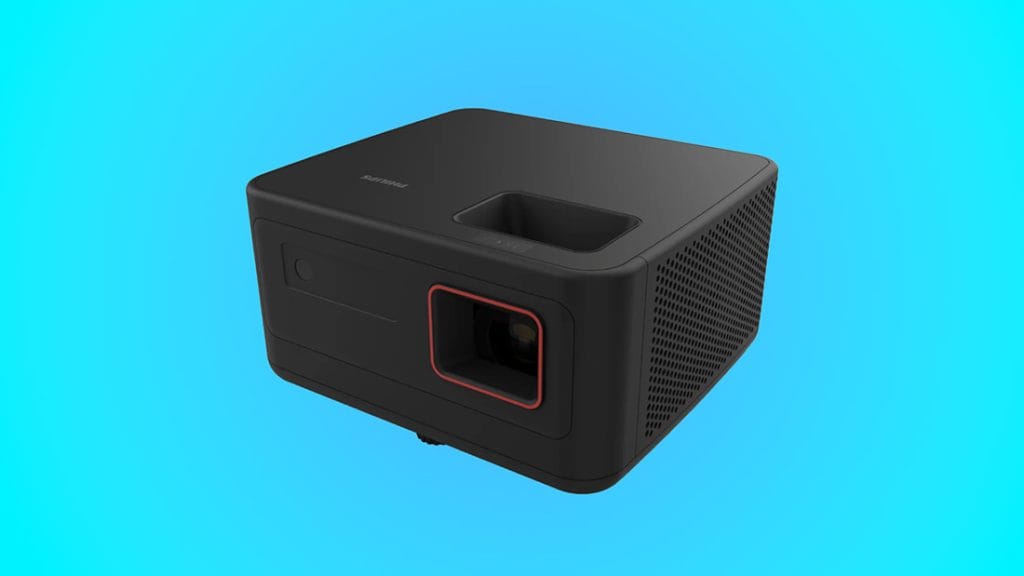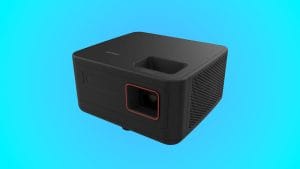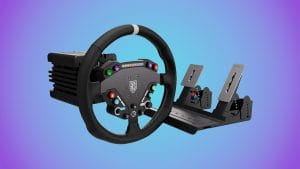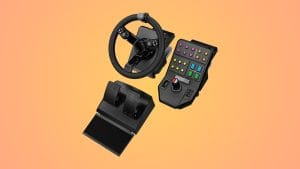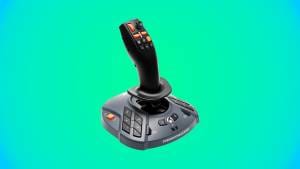TEAMGROUP T-FORCE Delta RGB DDR4 Desktop Memory
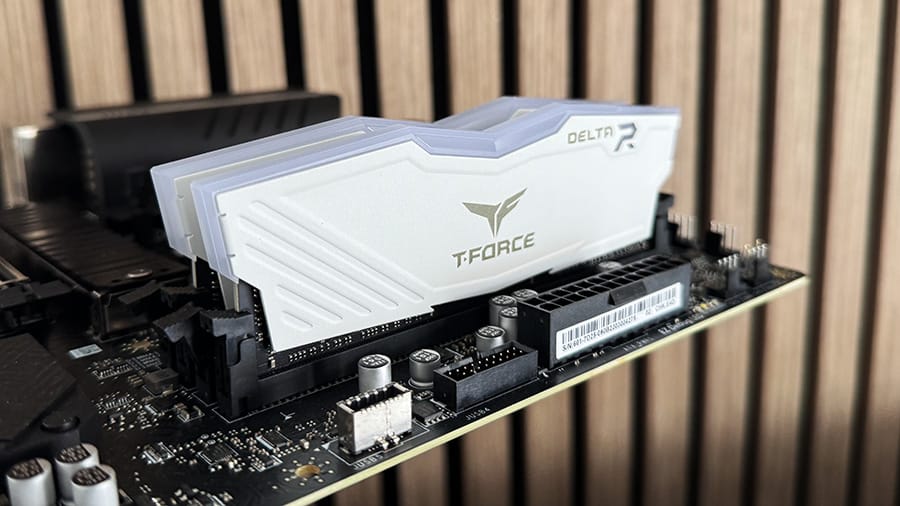
design
There’s no questioning the T-FORCE Delta DDR4s gamer vibe. While some RAM sticks prefer to shy away with modest designs, these modules command attention with rather striking heat spreaders and, of course, plenty of RGB. The angular design of the T-FORCE Delta’s aluminum alloy heat spreaders are matte-finished with your choice of black or white variants. Running the full length of each stick is a diffused, wide LED light bar that’s capable of pumping out some pretty vibrant, full-spectrum colour.
It’s not just that pointy design that makes the T-FORCE Delta RAM so imposing though, the stack of heat spreader and RGB makes these pretty hefty sticks and it’s something to be aware of when planning your build. At 49mm high, these modules are a chunk taller than standard DIMMs and as cases get more and more compact, clearance may become an issue in some layouts. I know this, because I faced some issues with my layout. Even in my mid-tower Corsair 4000D, I had to do away with a case-mounted top fan in order to fit the T-FORCE Delta DDR4 sticks in my case.
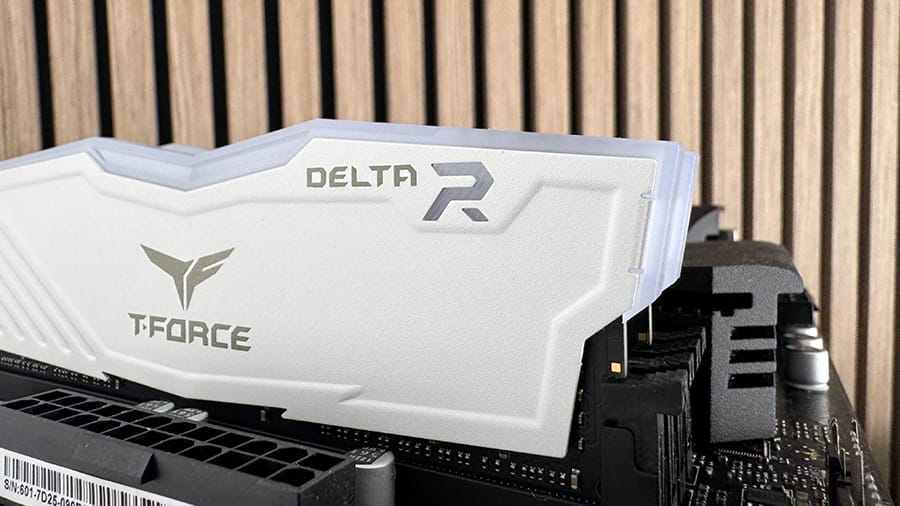
Build quality is impressive, there’s absolutely no flex or in the Delta DDR4 sticks and the matte aluminium frames feel suitably premium, even without an overly premium price point. Installing them was as simple as you’d hope and expect, after resolving the clearance issues that is, and each stick happily clicked into place and was recognised and ready to go. From first boot and without any software installation each stick lit up immediately though there’s RGB sync compatibility with a handful of major motherboard manufacturers. I was impressed by how saturated and smooth the T-FORCE Delta DDR4’s RGB effects are. Diffusion is noticeably smooth across the entire stick with no visible hot spots or flickering.
performance
While DDR5 is quickly taking over, DDR4 memory is still the most common for mid-tier gaming PCs and with prices coming down there’s always room to make a cheap performance gain in an existing build. The T-FORCE Delta kits I’m testing here have been in the market for some time and can regularly be found at rather accessible prices though availability is starting to become a little tricky.
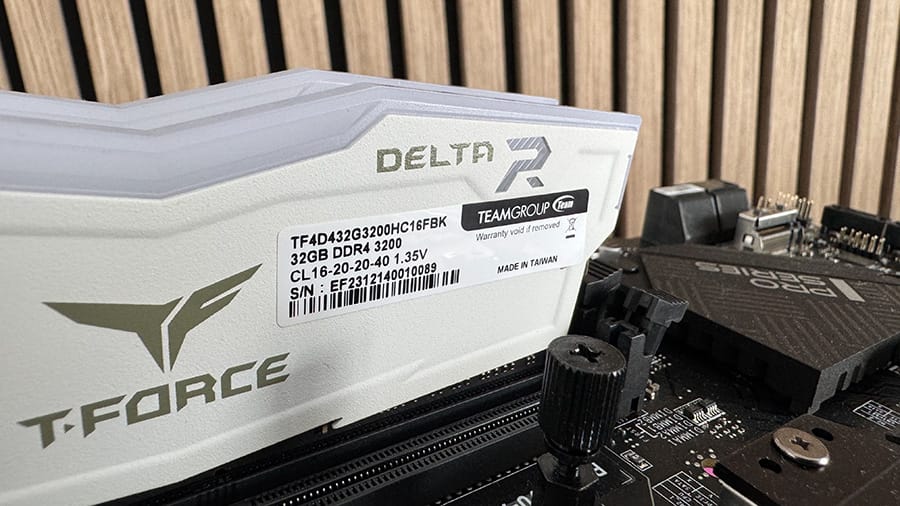
PC performance is a constant balancing act between components and while it’s CPU and GPU that tend to get all the attention, it can be surprising how much of a difference a RAM upgrade makes. The T-Force Delta DDR4 memory I’ve been testing sits in a popular performance tier, rated at 3200MHz, the kit doesn’t aim to break records, but it should offer reliable performance for both gaming and productivity. I’m not one for benchmarks so don’t expect a whole heap of numbers here, I’ve been real-world testing the T-FORCE Delta DDR4 RAM and getting a feel for the impact it made having made the jump to both a higher frequency and a higher capacity.
For gaming, the T-FORCE Delta DDR4 memory was dependable across the board and there was a noticeable improvement in performance across titles, even without tracking actual FPS metrics. I stream a majority of my PC gaming so there’s plenty of processes going on at the same time, coupled with a few background apps like Discord and my RAM is certainly earning its keep. This is where I noticed the most improvement having bumped up to 64GB of RAM. While most games won’t benefit directly from RAM beyond 16 or 32GB, having that buffer prevented any slowdowns during multitasking scenarios.
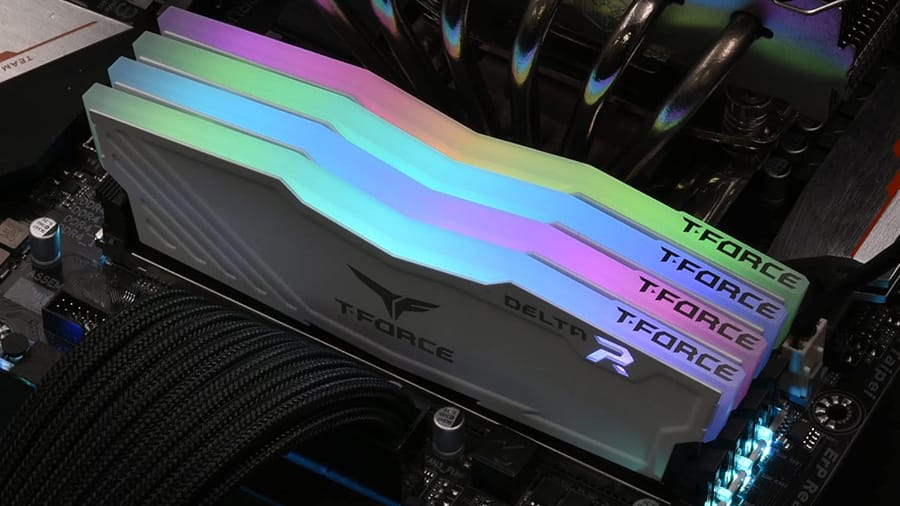
Working in creative apps like Adobe Premiere Pro also showed benefits. The T-FORCE Delta DDR4 kit didn’t hiccup when scrubbing through a 4K video timeline, even with a few effects and plugins going on too. Export times were competitive, and the 64GB capacity ensured zero paging or memory swapping during heavy loads. Similarly, in Blender, scenes with large assets and high poly counts loaded quickly, and rendering was consistently smooth.
I’m not much of a tinkerer when it comes to moving away from factory settings or dabbling any further than some manufacturer offered presets in support apps. That said, the default XMP profile offered a small bonus bump in performance and given it’s as simple as a drop down menu in the BIOS I’m not going to complain. If you do want to play around with more manual overclocking there are small gains to be had, but for most people I imagine the XMP profile will suffice.
summed up
It may not push the limits when it comes to specs, but the T-FORCE Delta DDR4 3200MHz 64GB kit is a well-rounded offering for users looking to balance performance and value with a little RGB flair too. This isn’t a standout star player, it’s not a high profile signing from a major European club, and it’s not trying to be either. Instead, it delivers solid performance with a minimum of fuss, offering a great price-to-performance option for gamers, creatives and those who want a plug-and-play experience with a little headroom for overclocking too.
There’s little to complain about here, provided you can actually get the T-FORCE Delta DDR4 in your build. From a design perspective, it’s rather striking but rather large too and it took a fair bit of persuasion, manoeuvring and even removing of other parts for me to get this RAM installed. Once in place though, you’re unlikely to be let down by the T-FORCE Delta DDR4, whichever of the many configurations you choose.

